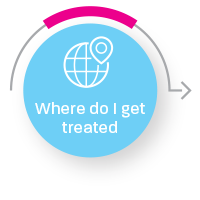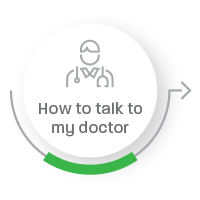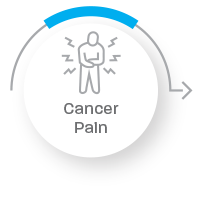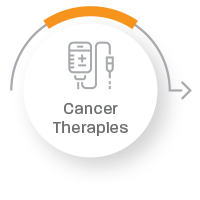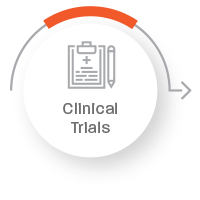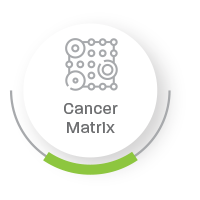Where Do I Get Treated?
Where Do I Get Treated?
Choosing where to get cancer treatment is one of the most important decisions you and your loved ones will make. Some people feel more comfortable staying at their local hospital because it’s close to home, familiar, and easier for family to visit. Others may choose to travel to a larger cancer center that offers more specialists, advanced treatments, and access to clinical trials.
There’s no one-size-fits-all answer. The best choice depends on your type of cancer, your overall health, your support system, and what resources you have—like transportation, insurance, and time. Cancer GPS is here to help you understand your options so you can make a decision that feels right for you and your situation.
Below are the different types of cancer center programs:
Integrated network cancer programs
Integrated network cancer programs offer a wide range of cancer specialists and services that provide more comprehensive care, but may not be the best choice for patients who prefer a more personalized approach.
Academic comprehensive cancer programs
Academic comprehensive cancer programs, affiliated with universities, are good options for patients interested in clinical trials or cutting-edge treatments, but may have long wait times and be research-focused.
NCI-designated comprehensive cancer programs
NCI-designated comprehensive cancer programs are recognized for providing high-quality care and research, offering access to the most advanced treatments and technologies. However, they may have long wait times and be located far from the patient’s home.
Comprehensive community cancer programs
Comprehensive community cancer programs are a local option for comprehensive care, while community cancer programs offer personalized care but may lack resources.
Hospital associate programs
Hospital associate programs offer a range of cancer services within a hospital setting.
Pediatric cancer programs
Pediatric cancer programs offer specialized care for children with cancer, while veteran affairs programs provide services specifically for veterans.
Ultimately, patients should research their options carefully and discuss their decision with healthcare providers and loved ones. Choosing the right cancer center is critical in receiving proper care, so it is important to take the time to find the best fit for each individual’s needs.
Cancer Center Locator: This tool shows you a list of cancer centers near your location and is categorized by the different types of programs.
FAQ
How do I know if I should be treated at a community hospital or a big cancer center?
Local hospitals can offer excellent care, especially for common types of cancer. They’re easier to get to and may be less stressful. Larger cancer centers often have more experience with rare or complicated cancers and may offer treatments not available elsewhere. Some people choose to get a second opinion at a big center, then continue treatment locally. You don’t have to choose just one—many patients use both.
What should I look at when choosing a treatment place?
Here are some things to think about:
- Experience: Does the hospital treat a lot of patients with your type of cancer?
- Support services: Do they offer help from social workers, dietitians, or financial counselors?
- Location: Is it easy for you to get there regularly?
- Insurance: Will your insurance cover treatment at that hospital?
- Comfort: Do you feel safe and cared for when you visit?
Do all hospitals give the same cancer care?
Not always. Most hospitals follow national guidelines and offer good care. But some cancer centers have special programs, more advanced technology, or access to new treatments through research studies (called clinical trials). These can be important if your cancer is rare or hard to treat.
How can I find out if a cancer center is certified or recognized?
You can:
- Ask your doctor or nurse navigator.
- Visit the Commission on Cancer website to see if the hospital is accredited.
- Check the National Cancer Institute (NCI) list of recognized cancer centers. These certifications mean the hospital meets high standards for cancer care.
Should I travel for treatment?
It depends. If your cancer is rare or very complex, traveling to a major center might give you access to better options. But travel can be hard—especially if you’re tired or don’t have help. Many people get expert advice from a big center, then do most of their treatment closer to home.
What support services should I ask about?
Support services can make a big difference. Ask if the hospital offers:
- Nurse navigators (to help guide you through treatment)
- Social workers (for emotional and practical support)
- Financial counselors (to help with costs and insurance)
- Nutrition services (to help you stay strong during treatment)
- Survivorship programs (to help after treatment ends)
Does my insurance matter when choosing a hospital?
Yes. Always check with your insurance company to see which hospitals and treatments are covered. You can also ask the hospital’s billing office or financial counselor to help you understand your benefits.
How do I compare different hospitals?
You can:
- Ask your doctor for recommendations.
- Look at survival rates and patient reviews.
- Visit websites like S. News & World Report or the Commission on Cancer for rankings and reports.
- Talk to other patients or support groups about their experiences.
Who can help me choose where to go?
Start with your oncologist or primary care doctor. They know your medical history and can guide you. Nurse navigators, social workers, and patient advocacy groups can also help you understand your options and make a plan.
Can I switch hospitals later?
Yes. You have the right to change your care at any time. If you decide to switch, ask your current hospital to send your medical records to the new team. It’s a common process, and your new doctors will need your history to continue your care.

How AskBernie Helps
Not sure whether to stay local or travel for care? AskBernie is here to help you think through your options. AskBernie can:
- Explain the difference between local hospitals and major cancer centers.
- Help you understand what certifications like “NCI-designated” or “Commission on Cancer-accredited”
- Suggest questions to ask your doctor or hospital when comparing places.
- Help you find support services that match your needs.
- Guide you through insurance questions and what to expect financially.
- Connect you with resources to make travel easier if you choose a center farther away.
AskBernie is like having a knowledgeable friend who understands cancer care and wants to help you make the best decision for your life and health.

Help Support Cancer GPS
Cancer GPS is a 501(c)(3) organization, and your donations allow us to keep providing services to cancer patients and their families. Thank you for your continued support.

